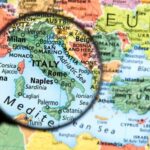Are there travel restrictions in Italy? Amid the ongoing COVID-19 pandemic, understanding the current travel restrictions in Italy is crucial for anyone planning to visit the country. With regulations constantly evolving, it is essential for travelers to stay informed and aware of any changes that may impact their trip.
In this article, we will delve into the current situation regarding travel restrictions in Italy, entry requirements for travelers, domestic travel restrictions, transportation regulations, and the impact on visiting attractions and events. Additionally, we will provide helpful tips for navigating these restrictions and offer guidance on staying informed about any future changes.
As Italy continues to navigate the challenges posed by the COVID-19 pandemic, it has implemented various travel restrictions to mitigate the spread of the virus. These measures have a direct impact on both local residents and international visitors intending to travel within or to Italy. Therefore, staying updated with the latest information on travel restrictions is vital to ensure a smooth and safe trip.
In the following sections of this article, we will discuss in detail the current status of travel restrictions in Italy, including entry requirements, domestic travel limitations, transportation regulations within the country, as well as how these restrictions affect visiting tourist attractions and attending events. By providing comprehensive insights into these aspects, we aim to equip travelers with valuable information necessary for planning their trips amidst these challenging times.
Current Situation
Currently, the travel restrictions in Italy are subject to change based on the evolving COVID-19 situation. It is crucial for travelers to stay updated on the latest regulations and guidelines before planning their trip to Italy. As of now, here is the current status of travel restrictions in Italy:
- Italy has categorized countries into different lists based on their risk level, including high-risk, moderate-risk, and low-risk countries. Travelers from high-risk countries may face stricter entry requirements and quarantine measures.
- Travelers from within the European Union (EU) or Schengen Area are allowed entry with minimal restrictions, but they may be required to present a negative COVID-19 test result upon arrival.
- Non-EU travelers are subject to more stringent regulations, including quarantine requirements and testing upon arrival. It is important for non-EU travelers to check the specific entry requirements based on their country of origin before planning their trip.
It is essential for travelers to monitor the official websites of the Italian government and relevant health authorities for any updates regarding travel restrictions in Italy. Additionally, consulting with airlines and local embassies can also provide valuable information regarding entry requirements and travel regulations.
Furthermore, it is advisable for travelers to consider purchasing travel insurance that covers unexpected changes or cancellations due to travel restrictions in Italy. Flexibility and preparedness are key when navigating the current status of travel restrictions in Italy amidst the ongoing pandemic.
Entry Requirements
The entry requirements for travelers to Italy amid the COVID-19 pandemic are crucial to understand before planning a trip to the country. As of the current situation, Italy has implemented specific entry requirements to control the spread of the virus and ensure the safety of both residents and visitors. It is important for travelers to be aware of these regulations and guidelines to avoid any complications during their journey.
Entry Requirements for Travelers to Italy:
- All travelers entering Italy from most countries are required to present a negative COVID-19 test result taken within 48 or 72 hours prior to arrival, depending on the specific regulations in place at the time of travel. It is essential for travelers to check the latest updates on this requirement before their departure.
- In addition to testing, some travelers may be subject to quarantine upon arrival in Italy, especially if they have traveled from high-risk countries. The duration and specifics of quarantine can vary, so it is important for travelers to stay informed about the latest regulations.
Travelers are advised to keep up with any changes in entry requirements for Italy by regularly checking official government websites, embassy information, and reliable travel advisories. Additionally, it is recommended that travelers consult with their airline or tour operator before traveling to ensure they meet all necessary entry requirements.
The safety measures put in place by many countries as well as international travel guidelines provide necessary restrictions intended at containing and minimizing the spread of COVID-19. These measures are part of responsible travel conduct which all passengers should adhere while visiting other nations including in Italy.
Domestic Travel Restrictions
Italy has implemented various travel restrictions in response to the COVID-19 pandemic, affecting both residents and visitors. These restrictions are essential to control the spread of the virus and protect public health. Understanding the current measures is crucial for anyone planning to travel within Italy, whether for leisure or essential purposes.
Current Status of Domestic Travel Restrictions
As of the present time, Italy has varying levels of restrictions depending on the region’s COVID-19 transmission rates. Some regions may have stricter measures in place, such as limitations on movement and gatherings, while others may have fewer restrictions. It is important for travelers to stay updated on the latest regulations for their specific destination within Italy.
Entry Requirements Within Italy
Travelers entering Italy from another country must adhere to entry requirements, including providing a negative COVID-19 test result or undergoing quarantine upon arrival. Additionally, there may be specific requirements for domestic travel within Italy, such as presenting a digital health certificate or completing a self-declaration form. These measures are designed to prevent the spread of the virus and protect public health across different regions in Italy.
Impact on Residents and Visitors
The domestic travel restrictions in Italy have impacted both residents and visitors in various ways. Residents may face limitations on moving between regions or cities, while visitors may encounter obstacles when visiting tourist attractions or attending events. It is crucial for all travelers to research and understand the specific restrictions and guidelines that apply to their intended destinations within Italy.
Transportation
As the world continues to navigate the challenges posed by the COVID-19 pandemic, travelers are understandably concerned about the travel restrictions in Italy. One of the key aspects that travelers should be aware of is the situation regarding transportation within the country. Whether it’s taking a train, bus, or domestic flight, understanding the specific restrictions and regulations in place is crucial for a smooth and safe travel experience.
Public Transportation
Italy has implemented various measures to ensure the safety of passengers using public transportation. It is mandatory to wear face masks while using public transport, such as buses, trams, and trains. Additionally, social distancing guidelines must be followed, and passengers may find reduced capacity on certain services to allow for adequate spacing between individuals. Travelers should also be prepared for possible temperature checks and health screenings at transportation hubs.
Domestic Flights
For those planning to take domestic flights within Italy, it is important to note that specific regulations are in place at airports across the country. Similar to public transportation, face masks and social distancing are required at airports.
Travelers should also be aware that there may be additional health screenings or testing requirements depending on their specific travel itinerary. It’s advisable to check with individual airlines for their respective policies and any updates on travel restrictions before embarking on any domestic flights.
Stay Informed
It is essential for travelers to stay informed about any updates or changes to transportation-related travel restrictions in Italy. This can be done by regularly checking official government websites, consulting with trusted travel advisories, and keeping in touch with local authorities or transportation providers for real-time information. By staying up-to-date on the latest developments, travelers can better prepare for their journeys within Italy amidst these unique circumstances.
Navigating transportation within Italy during these times requires an understanding of the specific restrictions and regulations in place. By adhering to these guidelines and staying informed about any changes, travelers can contribute to ensuring their safety as well as that of others while traveling within Italy.
Attractions and Events
The impact of travel restrictions on visiting tourist attractions and attending events in Italy can be significant, as these are major draws for both domestic and international travelers. Amid the COVID-19 pandemic, many attractions and events have been affected by restrictions and regulations aimed at limiting the spread of the virus.
Tourist attractions in Italy, such as museums, historical sites, and landmarks, have had to implement safety measures to ensure the well-being of visitors. This may include capacity limits, timed entry tickets, and mandatory mask-wearing. Some attractions may also require advance reservations to manage crowd size and maintain social distancing protocols.
Similarly, many events in Italy, including concerts, festivals, and cultural gatherings, have been either canceled or postponed due to the pandemic. Those that are still taking place may have strict guidelines in place for attendees, such as outdoor venues with limited capacity or health screenings upon arrival.
In addition to these measures implemented by individual attractions and event organizers, travelers should also be aware of any overarching travel restrictions that may apply to visiting these destinations. It is important to stay updated on the latest regulations from local authorities and health organizations when planning a trip to Italy.
| Italy Travel Restrictions | Impact on Attractions and Events |
|---|---|
| Mandatory mask-wearing | Limited capacity at tourist attractions |
| Event cancellations or postponements | Health screenings at events |
| Advance reservations required at some attractions | Restrictions on indoor gatherings |
Travel Tips
As of the current situation, there are travel restrictions in Italy due to the ongoing COVID-19 pandemic. It is crucial for travelers to stay informed about the latest regulations and entry requirements before planning a trip to Italy. The country has implemented various measures to control the spread of the virus, which also affects domestic and international travel.
First and foremost, travelers must be aware of the entry requirements for visiting Italy. This includes undergoing COVID-19 testing before arrival, as well as quarantine regulations that may be in place. These requirements can change frequently depending on the infection rates and government policies, so it is important to stay updated with official sources such as the Italian Ministry of Health or the embassy or consulate of Italy in your home country.
In addition to entry requirements, it is essential to understand any domestic travel restrictions within Italy. Different regions may have varying rules and regulations regarding movement within the country, so travelers should research and plan accordingly. Public transportation and domestic flights are also subject to specific restrictions, such as reduced capacity or additional health protocols. Being aware of these limitations can help travelers navigate their journey more effectively while ensuring their safety and compliance with local laws.
| Entry Requirements | COVID-19 Testing Before Arrival, Quarantine Regulations |
|---|---|
| Domestic Travel Restrictions | Varying rules and regulations by region |
| Transportation | Specific restrictions on public transportation and domestic flights |
Conclusion
In conclusion, it is crucial for travelers to stay informed about the current travel restrictions in Italy, especially amid the ongoing COVID-19 pandemic. As of the present time, there are travel restrictions in Italy that include entry requirements such as testing and quarantine regulations for travelers. These restrictions can vary based on the traveler’s country of origin and vaccination status, so it is important to stay updated on the latest requirements before planning a trip to Italy.
Furthermore, domestic travel within Italy may also be subject to certain restrictions for both residents and visitors. This could impact transportation options, including public transportation and domestic flights. Additionally, the visiting of tourist attractions and attending events in Italy may be affected by travel restrictions and health protocols put in place by local authorities.
As travelers navigate through these challenging times, it is essential to stay informed about any changes or updates regarding travel restrictions in Italy. This can be done by regularly checking official government websites, contacting airlines or embassies for information, and staying up-to-date with travel advisories from reputable sources. By remaining vigilant and well-informed, travelers can ensure a smoother experience while adhering to the necessary regulations for traveling to Italy.
Frequently Asked Questions
Are There Any Travel Restrictions to Italy?
As of now, there are travel restrictions in place for those traveling to Italy. These restrictions vary depending on the country of origin and can include testing requirements, quarantine measures, and specific entry documentation.
What Is Required for a US Citizen to Visit Italy?
For a US citizen to visit Italy, several requirements must be met. These typically include having a valid passport, obtaining a visa if planning to stay for an extended period, and being aware of any current travel restrictions or entry requirements due to the ongoing pandemic.
Is There a Travel Warning for Italy?
Currently, there is not a travel warning specifically for Italy. However, it’s important for travelers to be informed about the current situation in the country, including COVID-19 guidelines and any potential safety concerns that may affect their trip. Staying updated with reliable sources is essential when considering travel plans to Italy.

I’m a passionate traveler, writer, and Italophile. My fascination with Italy’s history, art, and culture has led me on countless adventures across the Italian landscape. Through “I Live Italy,” I share my love for this extraordinary country and aims to inspire others to explore its boundless beauty.




